|
LISTEN TO THIS THE AFRICANA VOICE ARTICLE NOW
Getting your Trinity Audio player ready...
|
On August 31, Erica Chandra Kitula, a transgender woman, was found dead under suspicious circumstances in Westlands, Nairobi. Kitula volunteered with Jinsiangu, an organization that describes itself as “a Nairobi-based social justice organization working to create awareness and respect of trans[gender], intersex, and gender non-conforming Kenyans.”
Circumstances surrounding her death remain a mystery.
The following month, Peter Murimi’s documentary “I Am Samuel” was banned by the Kenya Film Classification Board (KFCB) because of its favorable depiction of a gay man’s life. In both instances, LGBTQ Kenyans expressed their outrage and a renewed desire to see sections 162 and 165 of the Kenyan Penal Code repealed.
These sections were added to the Penal Code in 1930 when Kenya was still under British rule. 162 states that “any person who has carnal knowledge of any person against the order of nature is guilty of a felony and is liable to imprisonment of fourteen years.”
I AM SAMUEL OFFICIAL UK TRAILER | DOCUMENTARY IS BANNED IN KENYA FOR POSITIVE PORTRAYAL OF A GAY COUPLE
Section 165 specifically prohibits homosexuality, described as “gross indecency” between two men.
Yet while British leaders like Theresa May have apologized for their country’s role in criminalizing homosexuality in its colonies, Kenya’s leaders continue to insist that being LGBTQ will never be a part of Kenyan culture.
In their ruling, the judges said, “acknowledging cohabitation among people of the same sex would indirectly open the door for (marriage) of people of the same sex.”
In May 2019, a petition seeking to overturn section 165 was defeated in the Kenyan High Court. In their ruling, the judges said, “acknowledging cohabitation among people of the same sex would indirectly open the door for (marriage) of people of the same sex.” The unfavorable ruling in the courts dealt a big blow to the LGBTQ community, who felt they had no legal protections in Kenya and may never be able to live freely.
LGBTQ Kenyans find it difficult to go out in public because of the verbal and physical abuse they’re likely to face. Tiffany (not her real name), a Nairobi lesbian who requested to remain anonymous, recalled a situation where she witnessed a lesbian couple get harrassed by matatu touts in the Central Business District of Nairobi.
“I’m walking, and in front of me there was this stud [masculine-presenting lesbian], and there was this femme, and she had this teensy weensie skirt [mini skirt]. Some tout came and slipped his hand under [the femme’s skirt] to see whether she had any panties.”
She said the stud turned back and almost got into a fight with the tout and attracted a curious crowd. Matatu drivers were starting to heckle them and making threats.
“‘We know your kind; we know you guys. Don’t think we don’t recognize you all,'” Tiffany recalled. “It was so scary because I was just next to them, and I looked very dyky. I just ran away.”
“It doesn’t make sense to hold onto something somebody told you in 19 something and treat it like gospel truth now,” says Erica*, the founder of the Nairobi-based social enterprise Metamour. Metamour was founded in June 2021, when Erica wanted to celebrate their birthday but didn’t feel like dealing with homophobia and transphobia.
Erica spoke to his LGBTQ friends, who then reached out to theirs. What started as a one-off event soon morphed into a proper “queer gathering space” that has managed to host movie screenings and open mikes despite limited funds. Metamour’s goal is to create spaces for people to gather free of judgment or persecution at an affordable price.
“You can go to Alchemist and make out with someone, and it’s okay, but how many can afford to be there? The goal is for all Metamour events to be free. We’re just gathering, and people shouldn’t have to pay for that,” Erica said.
The issue of money is a pervasive one within the LGBTQ community. Although exact figures are not available due to a lack of research, many within the community, especially those from working-class backgrounds, face difficulties gaining employment.
“‘We know your kind; we know you guys. Don’t think we don’t recognize you all,'” Tiffany recalled. “It was so scary because I was just next to them, and I looked very dyky. I just ran away.”
While the 2010 Constitution asserts that all Kenyans have a right to employment, there are no protections against discrimination for LGBTQ people. According to Ivy Werimba, the Communication and Advocacy officer at the Gay and Lesbian Coalition of Kenya (GALCK), “You get a job then you get fired once someone finds out. [You] don’t have a way to become an active participant in the economy. [You] can’t fully live as a human being in the society because one part of [you] has been criminalized by the institution.”
GALCK was founded in May 2006 as a coalition with an initial membership of four organizations with the mission of “capacity strengthening, alliance building, and cohesion.” One of the organization’s goals is to plan a wide-scale study of discriminatory practices in Kenya.
“Most people don’t believe these things are happening to [LGBTQ people]. There’s not enough documentation that shows that queer people face constant abuse. That was one of the things we picked up during the ruling,” Werimba said.
Community organizers such as Makena* of the Queer and Trans Fund have found that the COVID-19 pandemic exasperated preexisting economic issues in the community. Though lack of jobs, housing, and food has impacted all Kenyans, the LGBTQ community also saw a lack of access to gender reassignment hormones, condoms for sex workers, and connection to resources from non-governmental organizations.
When the pandemic hit, many NGOs closed or pulled out of areas they served, leaving people depending on their services without help, Makena said.
The Queer and Trans Fund was started in March of 2020 when Mumbi, another community organizer, reached out to Makena and asked if she knew anyone within the community who needed some financial assistance. Makena posed the question to their Instagram followers and received many requests from LGBTQ Kenyans and more monetary donations.
The Fund took on four other volunteers to help as requests poured in. As of January 2021, the Fund had received ksh 2,397,300 ($23,973). People have sent rent, utilities, groceries, transport, mental health services, and housing relocation requests.
“You don’t have to tell us your sad stories for us to empathize and send money,” Makena says. “For certain amounts of money, like paying rent, we require receipts. But otherwise, we find it intrusive to dig into people’s personal histories.”
Despite Makena and his colleagues’ passion for running the Fund, catering to non-stop demands eventually took its toll. The Fund went on hiatus from July to November so the team could catch a break.
“One of the biggest challenges we faced was not taking a break till this year,” she says. “From March [2020] to July [2021], we would be fulfilling requests Sunday to Sunday, 24/7; this is voluntary work, and we are also dealing with our work, social life, family, and trauma.”
Erica also experienced a similar burnout. Although she runs Metamour with the help of friends, the overwhelming amount of need is still a lot to handle. As of November 2021, the organization took a break from hosting events as they looked for funding.
“I get DMs every day from people asking ‘when is the next event.’ I keep going because I know that for a lot of people, being able to exist in a place where they can just be is important for mental health,” they say.
According to the National Alliance on Mental Illness, a US-based organization, lesbian, gay, and bisexual adults are twice as likely as heterosexual adults to experience a mental health condition. In comparison, transgender adults are four times as likely as other adults to experience a mental health condition.
Mary Wairimu, a freelance trauma healing practitioner, believes that various social factors play a part in the mental health issues LGBTQ Kenyans face.
“I find that [LGBTQ clients] come with so much shame and regret and self-doubt, mostly because of how they’re seen and of course the religious view that Kenyans adopt,” Wairimu said. “It feels like other people want to fix them when there’s really nothing wrong with them being LGBT.”
“I find that [LGBTQ clients] come with so much shame and regret and self-doubt, mostly because of how they’re seen and of course the religious view that Kenyans adopt,” Wairimu said. “It feels like other people want to fix them when there’s really nothing wrong with them being LGBT.”
In addition to freelance work, Wairimu is also a strategic partner with Hardiness Unearths Great Success (HUGS), a Nairobi-based organization founded in 2019 by youths “with a common goal of finding ways to overcome mental health problems.” In the two years, she has been in practice, Wairimu has found that many LGBTQ clients experience mental health issues due to a lack of acceptance and community.
“In Kenya, we still have that religious chokehold on us. And especially our parents,” Wairimu said.
I Am Samuel’s trailer on YouTube illustrates an example of parental rejection upon discovering their son is gay.
Wairimu said most parents could not imagine men and women can want to have a sexual relationship with members of their gender.
“It doesn’t sound or appear ‘normal,'” Wairimu said. “So if a parent keeps taunting you, and you lack that support system, and you lack any community where you can go and be yourself, it’s terrible. And it’s detrimental to your mental health.”
The continued inclusion of 162 and 165 in the Penal Code has been met with approval by many Kenyan religious leaders. After the 2019 High Court ruling, Anglican Archbishop Jackson Ole Sapit stated that homosexuality “is against everything- our culture, the bible, nature, our faith.” However, for Erica, the continued insistence that the LGBTQ violates the laws of nature is a tired one.
“What do you mean by nature? Am I not part of nature also?” Erica said. “What’s unnatural is not letting people love or be who they want to be.”
In addition to economic and social obstacles, LGBTQ persons also find themselves unfairly represented in the media, both as subjects and contributors. The death of Erica Chandra Kitula received little media coverage despite the newsworthy circumstances surrounding her death.
Werimba notes that “Queer people are isolated in the country, so our issues are not “mainstream.” A trans woman was killed, and we still don’t know what happened.”
Rose, a bisexual visual artist, finds that the existing laws and social prejudices make it difficult for artists to express themselves fully.
“Let’s say these gatekeepers decide that you’re too extreme. It makes a lot of people feel like they have to tone it down. I know a lot of people in the art community who identify as queer, but they keep it to themselves. There’s an element of fear.”
The negative impacts of 162 and 165 are not contained to the LGBTQ community alone. In 2019, Open for Business, a coalition of 27 global corporations, released a report that found Kenya loses up to Sh130 billion every year due to discrimination against the LGBTQ community. The report also found that lack of LGBTQ inclusion in the economy results in a loss of tourists, foreign investments, and innovation, all of which would lead to economic stagnation.
The colonial laws also stifle the development of the country’s national identity. LGBTQ people are often hesitant to vote because they do not feel political leaders represent their needs. Lack of participation from an entire demographic may result in an incomplete understanding of who Kenya’s citizens are and their needs.
“It is ironic that we as Kenyans are still enforcing laws that were left for us by people who were coming in to take over,” Werimba said. “Acceptance would mean people would no longer be afraid to be active participants in the voting process, for example. Right now, we’re going towards 2022 [election], and as a queer person, I have to think about which kind of leader I want to bring in.”
However, despite the many challenges LGBTQ people face, there is hope that things are slowly improving. Social media has played a crucial role in spreading acceptance. Many LGBTQ people have found it a valuable place to connect with other community members, join activist groups or just celebrate their queerness.
“Social media is a microphone, and it depends on who has it. If what you have to say is empowering, then it’s great,” Erica says. “I don’t think Metamour would be what it is without social media.”
“Social media is a microphone, and it depends on who has it. If what you have to say is empowering, then it’s great,” Erica says. “I don’t think Metamour would be what it is without social media.”
The group’s presence on social media has acted as a beacon of hope for a community that doesn’t often see itself positively represented. Metamour’s Instagram currently has 970 followers. GALCK also appreciates the importance of a significant social media presence, especially since the COVID pandemic has made physical meetings difficult.
“We recognize a need to expand our presence online because that’s where most queer people exist.”
Wairimu noted social media has been of great benefit for spreading awareness about mental health and providing information on resources.
“We live in an information age,” Wairimu said. “Now you know you don’t have to figure things out by yourself. Part of what HUGs does is connect people to counselors. You can imagine if millennials and all these other generations have [internet] access, then it’s easier for them actually to say, ‘you know what? I need help, and I know where it can come from.'”
But there is hope.
Some prominent Kenyans have championed LGBTQ rights. Civil rights advocate and professor Makau Mutua published an article in March supporting gay rights. Point-by-point, Mutua rubbished the reasons Kenyan leaders used to justify discriminating against gays and advocated for Kenyans to embrace LGBTQ Kenyans.
In October, TV host Larry Madowo made headlines for debating an anti-gay Ghanian MP on CNN over the MP’s support for a draconian law that sought to deny LGBTQ people their civil rights.
I Am Samuel producer has some advice for anti-gay people.
“When a straight [Kenyan], man or woman, especially from the church, speaks on LGBTQ+ rights, people listen,” Murimi said.
For Rose, progress may be slow, but things are changing.
“Our time is coming,” Rose said.
Regardless of whether Kenyan laws recognize LGBTQ rights, the government should fully investigate the death of Erica Chandra Kitula, just as it would investigate any other such incidents.
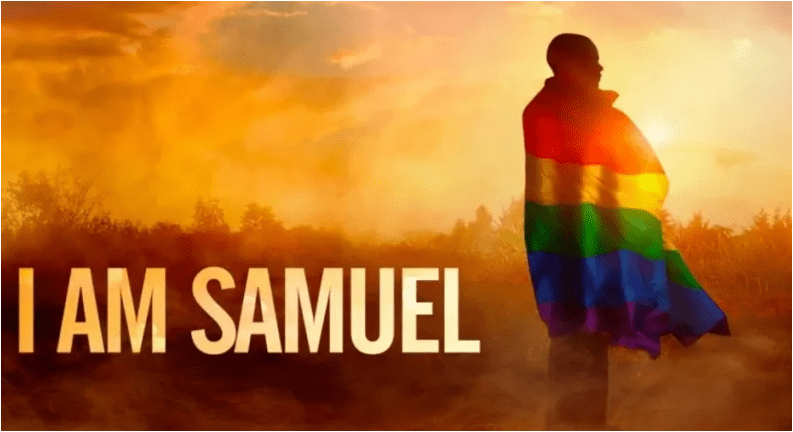






































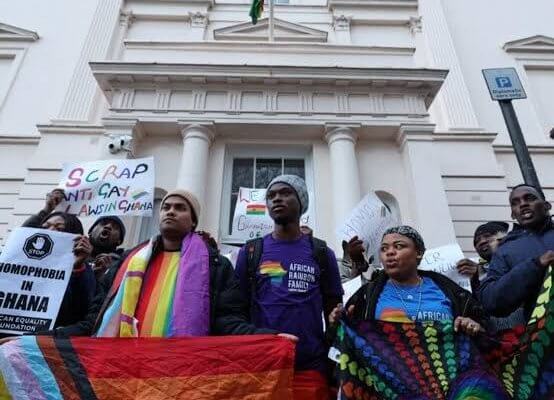
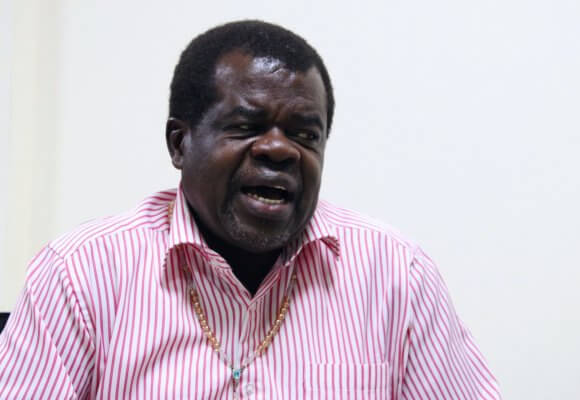
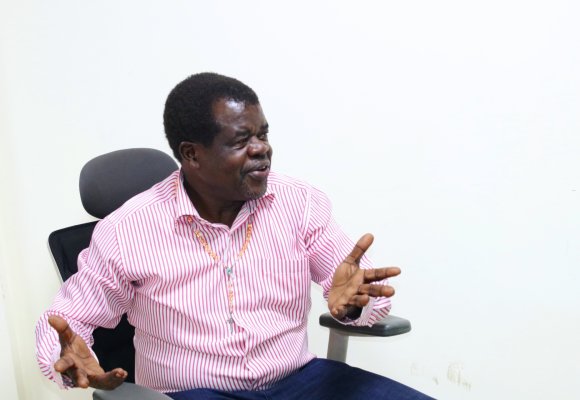
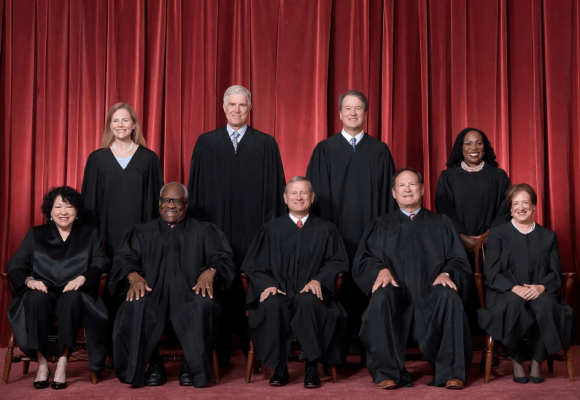
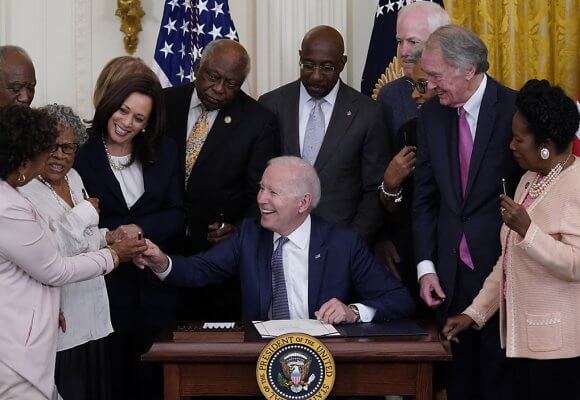
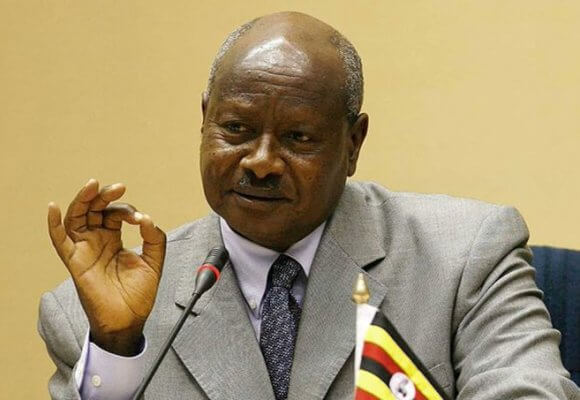
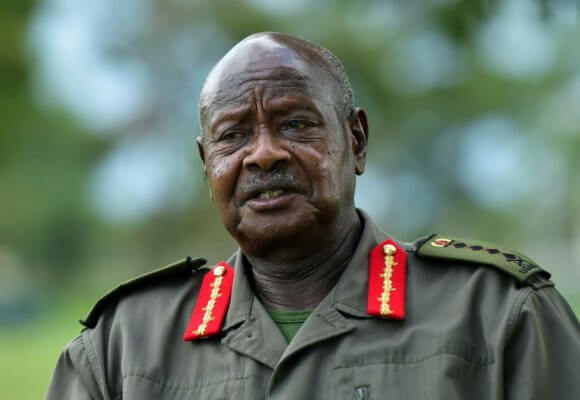
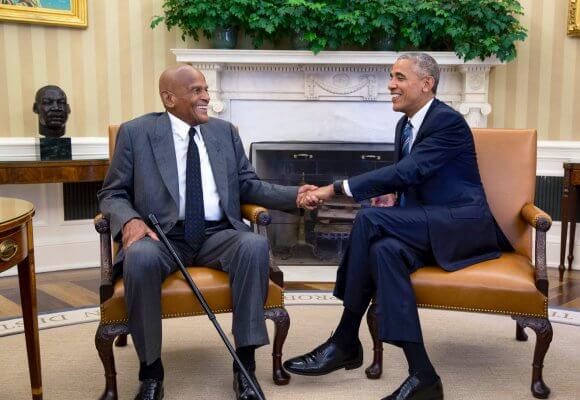
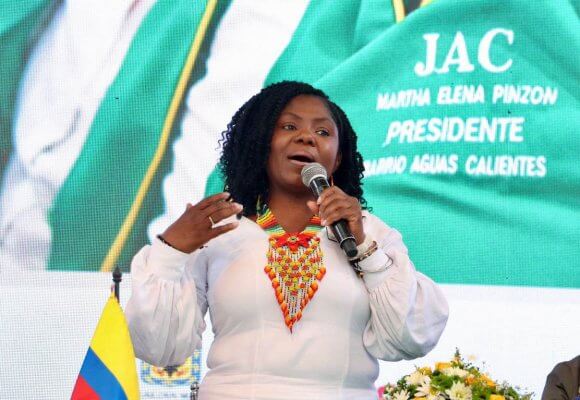
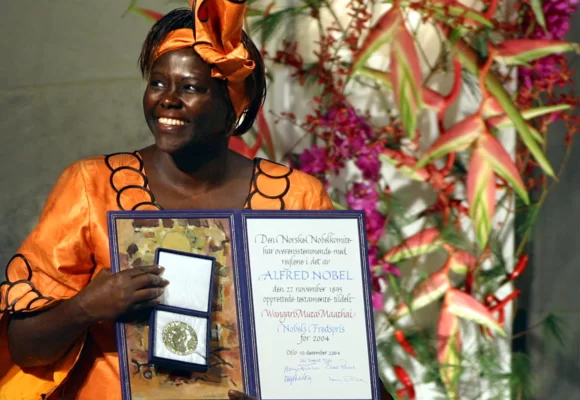
LEAVE A COMMENT
You must be logged in to post a comment.